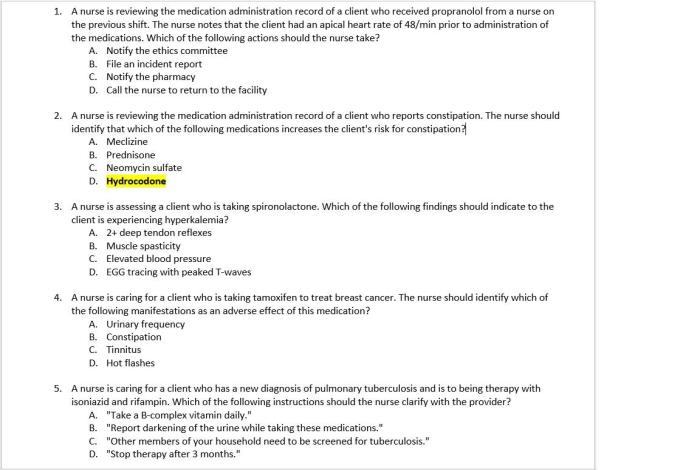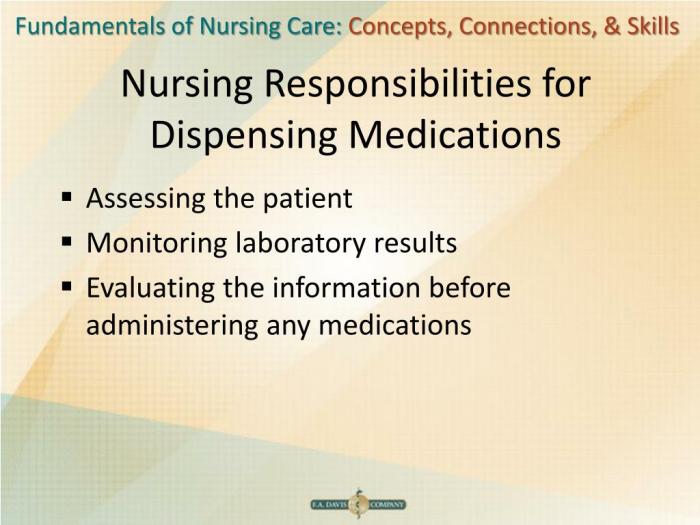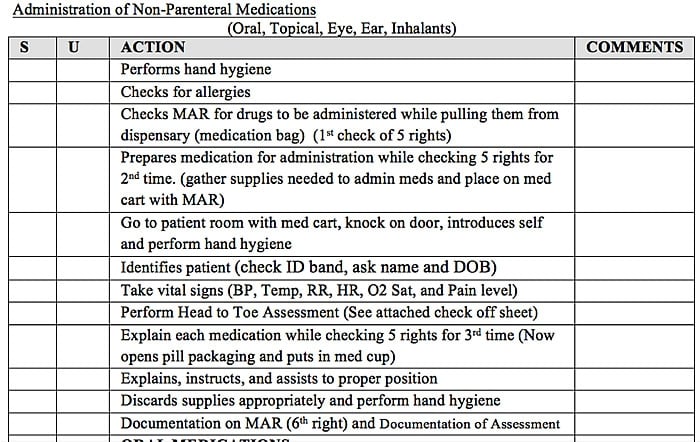A nurse manager is preparing to review medication documentation – A nurse manager’s preparation for reviewing medication documentation sets the stage for this enthralling narrative, offering readers a glimpse into a story that is rich in detail and brimming with originality from the outset. This comprehensive guide delves into the intricacies of medication documentation, providing a roadmap for nurses to enhance their practices and ensure patient safety.
The importance of adhering to medication documentation standards cannot be overstated. Common errors in medication documentation, such as incorrect dosages, missed entries, and illegible handwriting, can have serious consequences for patients. This guide provides best practices for accurate and timely medication documentation, empowering nurses to mitigate risks and improve patient outcomes.
Documentation Standards and Procedures

Adhering to medication documentation standards is crucial for ensuring patient safety and preventing errors. Common medication documentation errors include incorrect dosage, frequency, route of administration, or omission of important information. Accurate and timely medication documentation requires following established protocols, using standardized abbreviations, and recording all relevant details, such as the patient’s name, date, time, and medication details.
Medication Review Process
A comprehensive medication review involves evaluating a patient’s current medications, identifying potential problems, and making recommendations for optimizing therapy. Key elements to focus on include medication interactions, contraindications, adverse effects, and adherence. Using a standardized approach, such as the Medication Therapy Management (MTM) process, ensures consistency and thoroughness in medication review.
Nursing Assessment and Intervention, A nurse manager is preparing to review medication documentation
Nurses play a vital role in assessing and intervening on medication-related issues. They monitor patients for adverse effects, assess medication adherence, and educate patients on proper medication use. Nursing interventions include administering medications, adjusting doses as prescribed, and reporting any concerns or deviations from the medication plan.
Collaboration with other healthcare professionals, such as physicians and pharmacists, is essential for effective medication management.
Technology and Medication Documentation
Technology can enhance medication documentation accuracy. Electronic health records (EHRs) provide real-time access to patient medication information, reduce transcription errors, and facilitate medication reconciliation. However, challenges exist, such as ensuring data integrity and addressing potential workflow disruptions. Best practices include implementing robust data entry systems, providing adequate staff training, and integrating technology seamlessly into the medication documentation process.
Quality Improvement and Performance Measures
Quality improvement initiatives are essential for improving medication documentation practices. Key performance measures include medication error rates, documentation completeness, and patient satisfaction. Monitoring these measures helps identify areas for improvement and implement targeted interventions. Successful quality improvement initiatives involve collaboration, data analysis, and ongoing evaluation to ensure continuous improvement.
Helpful Answers: A Nurse Manager Is Preparing To Review Medication Documentation
What are the key elements of a comprehensive medication review?
A comprehensive medication review involves assessing the patient’s medication history, current medications, and any potential drug interactions or adverse effects. It also includes evaluating the patient’s understanding of their medications and their adherence to the prescribed regimen.
How can technology assist in improving medication documentation accuracy?
Electronic health records (EHRs) can automate medication ordering and documentation, reducing the risk of errors. They also provide real-time access to patient medication information, facilitating medication reconciliation and reducing the potential for medication errors.
What is the role of nurses in assessing and intervening on medication-related issues?
Nurses play a crucial role in assessing patients for potential medication-related problems, such as adverse effects, interactions, and non-adherence. They are responsible for intervening to address these issues, which may involve adjusting medication dosages, providing patient education, or collaborating with other healthcare professionals.


